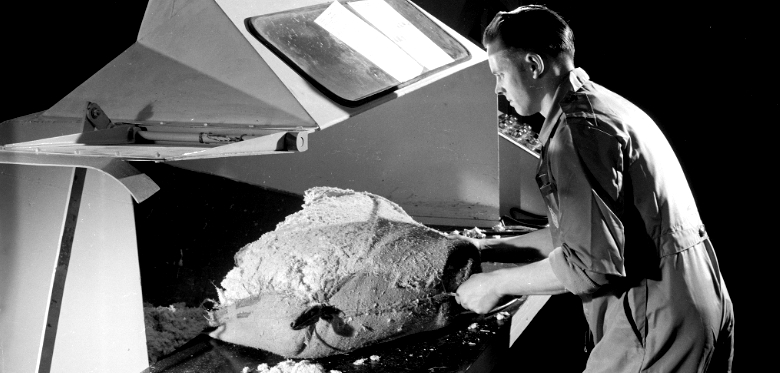November 2016 marked 15 years since the infamous Turner & Newall company went into administration, ending 130 years of asbestos production in Greater Manchester and leaving a legacy of disease and death for the workers and their families.
At its peak, Turner & Newall (T&N) was the world’s biggest asbestos factory. The Rochdale-based company was the first to produce asbestos on an industrial scale, pioneering techniques to weave asbestos fibres into cloth in the late 1800’s. The company grew rapidly throughout the 1930s and 40s, by which point it was clear to the industry that those who worked with the asbestos, came into contact with those who did, or even lived near to the factories were in grave danger.
This fact was not lost on T&N, who had a history of systematically denying and covering up any links between asbestos and the numerous respiratory diseases and deaths to its workers.
Asbestos related disease
Asbestos related disease was first properly recorded following a coroner’s report into the death of Rochdale worker Nellie Kershaw in 1924. The report was the first to explicitly link the presence of asbestos in her working environment with her death. Her employer, T&N, denied any liability for her injuries and refused to pay compensation to Nellie’s family as ‘it would create a precedent and admit responsibility’. Nellie was buried in an unmarked pauper’s grave.
In 1937, a company director wrote; “All asbestos fibre dust is a danger to the lungs. If we can provide evidence from this country that the industry is not responsible for any asbestosis claims, we may be able to avoid tiresome regulations and the introduction of dangerous occupational talk”.
Despite the clear links, which were fully understood by company bosses, T&N failed to take any measures which would effectively protect their employees. People who worked in T&N factories during the 1970s reported being completely surrounded by asbestos dust. Others recalled sweeping piles of the dust from the floor at the end of their shift and even having to wipe or spit the substance from their mouths. Those living in the Spodden Valley area of Rochdale, where the factory was based, would joke that it snowed ‘all year round’, with white asbestos coating the nearby trees, window ledges and gathering in the gutters.
Following an investigation by the Independent Newspaper, it was revealed that, in the 1980s, executives at T&N monitored the activities of journalists and environmental campaigners working to expose the dangers of asbestos. The company kept a detailed dossier on so-called ‘subversive’ individuals and attempted to discredit a group of documentary makers while accusing others of being communists.
Risks posed by asbestos
At the height of the debate over the safety of asbestos in the 1980s, the risks posed by asbestos – including mesothelioma, the cancer caused by exposure to the deadly fibres – was not well known by the general public. During that time, the government and organisations like T&N promoted the message that asbestos production was safe and ‘a vital British industry’.
T&N went into administration in 2001, financially crippled by the sheer number of legal claims against it, and prevented from producing or importing asbestos by the European Union. A mere £100m compensation scheme was established by the administrators.
Kate Sweeney, an expert in industrial disease at the law firm Stephensons, said: “Medical complications caused by exposure to asbestos can often go unnoticed for anything between 30 and 50 years, meaning the full impact of asbestos production upon the residents of Rochdale is not yet clear.
“There have been more than 1,500 mesothelioma deaths in Greater Manchester over the past 30 years with new cases expected to peak in 2020.
“What continues to shock those involved in fighting for the individuals and families affected is the lengths to which companies like Turner & Newall went to protect their business at the cost of their employees’ lives. Over the life-span of the firm, millions were exposed to deadly asbestos fibres while company bosses were in full knowledge of the dangers."
“While we can do nothing to help those whose lives have been lost to asbestos, it is vital that those who are still suffering the effects are aware of the avenues open to them in seeking compensation and make sure that those affected live a life that is as dignified and comfortable as possible.”
"It is vital that those who are still suffering the effects are aware of the avenues open to them in seeking compensation.”
Industrial disease compensation
If you believe you have been exposed to asbestos, either in its production, installation or removal, speak to one of our specialist industrial disease team on 01616 966 229.


